Very clean WDX, working winch, runs and drives well, nice interior and paint!
- Price:
- Location: Macedonia, Ohio, United States
- Make: Dodge
- Model: Power Wagon
- SubModel: WDX
- Type: Pickup Truck
- Year: 1947
- Mileage: 3,509
- VIN: 83903136
- Color: Green
- Number of cylinders: 6
- Fuel: Gasoline
- Transmission: Manual
- Interior color: Gray
- Options: 4-Wheel Drive
- Vehicle Title: Clear
1947 Dodge Power Wagon WDX Description
If you’re a regular viewer, you know that we love Power Wagons here at Harwood Motors. We’ve sold quite a few over the past two years and there’s just no question that the Power Wagon market is heating up in a big way. And it’s really over-due, given how awesome these trucks are, and even in today’s world, they’re still one of the ultimate tools. Got a ranch with a “back 40” that needs tending? There’s still nothing that can go places the Power Wagon can. Need something heavy moved? The PTO winch will move anything this side of a giant California redwood. Power Wagons are getting scarce, too—only about 95,000 were built, which seems like a lot until you realize that that was over a 22-year period and a vast majority were military or commercial-grade, which were typically used up and thrown away. What’s the point of all this? The Power Wagon is still the world’s foremost off-road machine, but it’s also a hot collectors’ item and in the coming years, good ones are going to become very hard to find at affordable prices.
This 1947 Power Wagon delivers on its rugged good looks. It enjoyed a cosmetic restoration a few years ago and looks fantastic today, with glossy paint and excellent trim that belies its bare-knuckle work ethic. It doesn’t look like this truck ever really worked very hard for a living, and the bodywork is in excellent condition with no signs of major surgery or rust in its history. The fenders aren’t bent and bashed like you often see on trucks that have been in the field and both doors open and close better than most of these trucks. The bed is still usable as a bed, having been coated with a spray-in bed liner material, so no worries about beating up some beautifully polished dance floor, and the running boards have been coated with the same stuff for durability’s sake. The truck also includes some pretty wooden stake sides for the bed, although we've removed them for photography. A single Dodge taillight is how these came from the factory and that’s how it remains today and both headlights are protected by a set of brush guards that look butch. Cowl lights are functional, the chrome “DODGE” and “POWER WAGON” emblems on the nose are in excellent condition, and the tailgate swings down easily, although it’s a little tweaked, perhaps from someone trying to hitch up a trailer while it was in the down position. Not terribly noticeable, just tweaked. And in addition to the heavy-duty 10,000 PTO winch on the front bumper, which is the Power Wagon’s most iconic feature (fully functional, by the way), and it's set up with a trailer brake controller and removable hitch (included), just in case you have some extra stuff to haul.
The interior has been sensibly upgraded over the bare-bones Power Wagon factory spec. Most notably, the bench seat is now covered in durable gray fabric, which is a lot more comfortable than the original vinyl. I’ll also note that it’s easier to stay put behind the wheel, as one tends to slide from side to side on vinyl as the truck climbs through the muck. The floors are covered with durable rubber mats and additional sound-deadening materials underneath, so this passenger compartment is a little better protected from heat and noise than most Power Wagons. Proper cardboard headliner material was used to finish the cab and it looks quite tidy, although the lens for the dome light is missing but should be easy enough to replace. The original gauges are in good order and it’s kind of cool to note that the transparent needle used in the speedometer is similar to those used in pre-war luxury marques such as Packard, so it has an upscale effect. The factory fuel gauge and ammeter are disconnected, replaced by modern dials in the center of the dash and necessitated by an upgrade to 12 volt electricals and a modern alternator under the hood. The giant steering wheel makes maneuvering easier than you’d expect, although this is still a man's truck in every way. Other upgrades include a neat two-axis cup holder that’s a good idea in a vehicle that can go where the Power Wagon can, as well as a fan above the windshield that actually makes quite a bit of difference on hot days. All the other controls are as the factory intended and there’s an accessory Mopar heater under the dash that’s fully functional, too. A manual throttle controls is there to manage any PTO drive components that you might use with your Power Wagon like, say, an oil derrick.
It’s easy to underestimate the Power Wagon’s 230 cubic inch inline-six, but it was built on its own assembly line and is designed to be the most reliable machine this side of an anvil. It’ll take you to remote places and back again without a second thought and with the myriad of add-on equipment and options for the Power Wagons, ranging from tow truck booms to sawmills, it was designed to run stationary for hours on end. And while it may share some dimensions with the passenger car engines, it’s actually a separate powerplant designed specifically for use in the truck. It’s also deceptively smooth for a truck engine, with a precise-sounding mechanical soundtrack that’s pleasing to the ear. Thanks to a lot of recent work that includes fresh ignition system components and carburetor parts, it starts and runs very well without getting cranky. It likes a little choke when you first start it up, but once it’s warm it pulls well and doesn’t seem to mind cruising along at 45 MPH, complements of "high-speed" gears in the pumpkins. The block is dressed neatly in black with no signs of trouble, and while it isn’t detailed for show, it’s functional and shows nothing that you need to worry about. You’ll note the aforementioned alternator, a recent water pump, new belts and hoses, and a plug-in engine block heater, which could have been a life-saver years ago.
That stout six is backed by a 4-speed manual transmission and a 2-speed transfer case with a 1.96:1 reduction ratio for really slow going. Power Wagon transmissions weren’t synchronized until the late ‘50s, but this one doesn’t seem particularly grumpy, and a quick blip of the throttle lines everything up nicely for clean shifts, and a double-clutch makes it effortless. Just remember, third gear is waaaay over there, but once you’re familiar with it, it’s a breeze to drive. First gear is ultra-low, so you don’t really need it, and once you’re in fourth it’ll crawl down to about 7 MPH, making this truck easy to drive around town. Brakes are manual drums at all four corners, and this is a very big truck, so plan your stops accordingly but pedal action is reassuringly smooth and firm. We haven’t ventured off-road with this struck, but all the 4-wheel-drive equipment appears intact and functional and the same goes for the PTO winch up front. Recent Goodyear tires give it the right look and are fitted to five original Budd steel wheels with lock rings.
We’ve been watching the Power Wagon market carefully and it has moved faster than anything this side of a 300SL. These are no longer $8000 disposable machines (which likely explains why so few remain), and we anticipate that quality Power Wagons will only get more valuable in the coming years. Of the 10 or so that we’ve sold, this one is one of the better ones and has a very polished feel (relatively speaking, of course) on the road. If you like the look and enjoy the utility it offers, this is a fantastic Power Wagon that’s ready to enjoy.
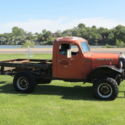 1951 Dodge Power Wagon Runs and drives winch works nice builder!!!
1951 Dodge Power Wagon Runs and drives winch works nice builder!!!
Mileage: 999,999
 1940 Dodge Power Wagon RUNS AND DRIVES!! Winch bumper
1940 Dodge Power Wagon RUNS AND DRIVES!! Winch bumper
Mileage: 1
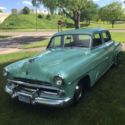 1951 Dodge Coronet Really nice paint runs and drives. 51 dodge
1951 Dodge Coronet Really nice paint runs and drives. 51 dodge
Mileage: 46,000
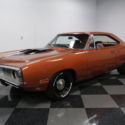 VERY NICE, 440 6-PACK, AUTO, BUILD SHEET, CLEAN/STRAIGHT BODY, NICE PAINT/INT!!
VERY NICE, 440 6-PACK, AUTO, BUILD SHEET, CLEAN/STRAIGHT BODY, NICE PAINT/INT!!
Mileage: 7,962
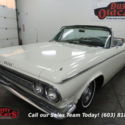 1964 White Runs Drives Body Interior VGood 383V8!
1964 White Runs Drives Body Interior VGood 383V8!
Mileage: 117,988
 1952 Green Runs Drives Body Interior VGood Reno Car!
1952 Green Runs Drives Body Interior VGood Reno Car!
Mileage: 155,170
 1990 White Runs Drives Body Interior VGood Great Camper!
1990 White Runs Drives Body Interior VGood Great Camper!
Mileage: 92,540
 1949 Dodge Custom Sedan New paint no rust drives nice
1949 Dodge Custom Sedan New paint no rust drives nice
Mileage: 9999
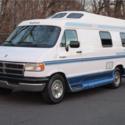 NO RESERVE 5.2L! CLEAN! RUNS DRIVES GREAT!
NO RESERVE 5.2L! CLEAN! RUNS DRIVES GREAT!
Mileage: 153,383
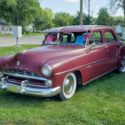 1951 Dodge Coronet all original, runs and drives nice!
1951 Dodge Coronet all original, runs and drives nice!
Mileage: 57000
